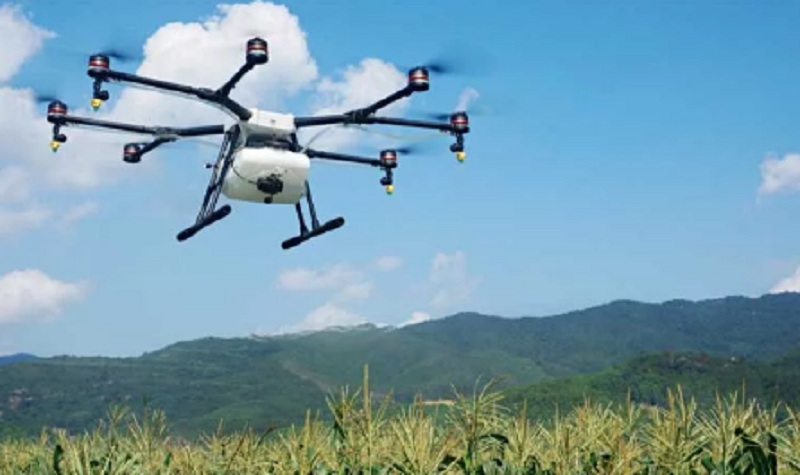Agartala: For the first time, drones have been used in Tripura to spray pesticides on rubber plantations, an official announced on Saturday.
This new initiative aims to combat a recent outbreak of a fungal infection, Phytophthora, which is widespread across three of the state’s main rubber-growing districts.
The drone-spraying operation was successfully conducted at the Rubber Board’s Taranagar farm in West Tripura.
The phytophthora is a genus of plant-damaging oomycetes, whose member species cause financial loss to crops as well as environmental damage. It causes premature leaf fall and halts latex colligation suddenly.
According to the Rubber Board of India, this marks a new era of precision in plant protection for the Northeast. The drones, which were not available locally, had to be urgently transported over 2,400 km by road from Coimbatore.
“The operation was made possible through the active participation of officials from the rubber production department, scientists and staff of the Rubber Board, with the support from local growers,” the Rubber Board of India said in a post on social media.
Joint Rubber Production Commissioner N. Sali confirmed that about 2,000 hectares of rubber plantations in the Gomati, Sepahijala, and West Tripura districts have been affected by the fungus.
“The spraying of fungicides through drones will be in full swing even as reports of decline in fungal infection. This will be done free of cost,” he added.
The infection, which causes premature leaf fall and stops latex collection, is believed to be a result of the state’s unusual weather conditions, including continuous rain followed by high temperatures and humidity.
A delegation of All Tripura Krishak Sabha, headed by its secretary Pabitra Kar, had met the joint rubber production commissioner in Agartala and sought urgent steps to prevent phytophthora (fungal infection) on rubber trees on August 30.
In response, the authorities said they had already carried out field inspections of several rubber plantations and identified the disease as phytophthora (fungal infection). Considering the seriousness of the issue, the Rubber Board had assured growers that it would engage two drones to spray fungicides to prevent the outbreak.
ALSO READ: Centre releases Rs 75.24 crore to set up 10 working women hostels in Tripura
Tripura is the second-largest producer of natural rubber in India, after Kerala. The state has over 110,000 hectares dedicated to rubber cultivation, producing approximately 110,000 metric tonnes annually.















